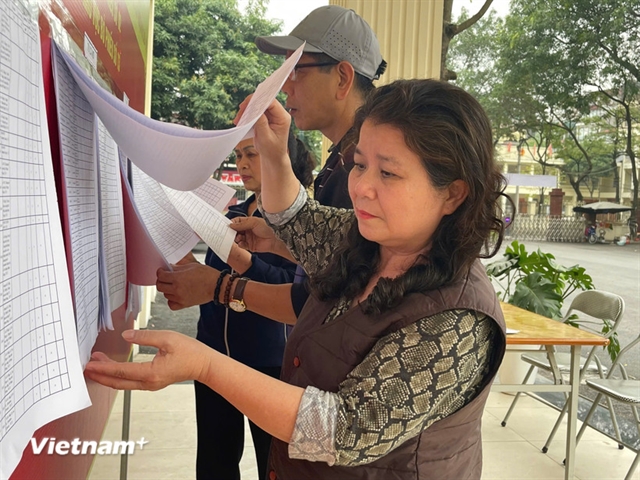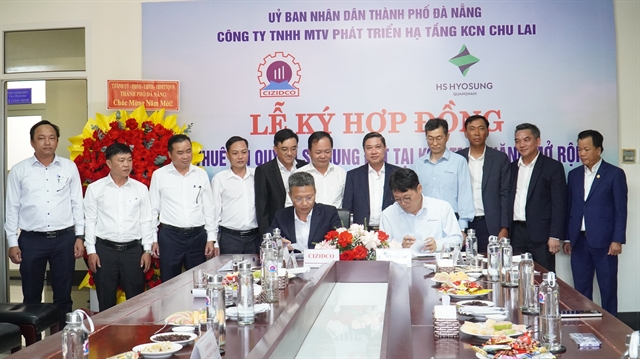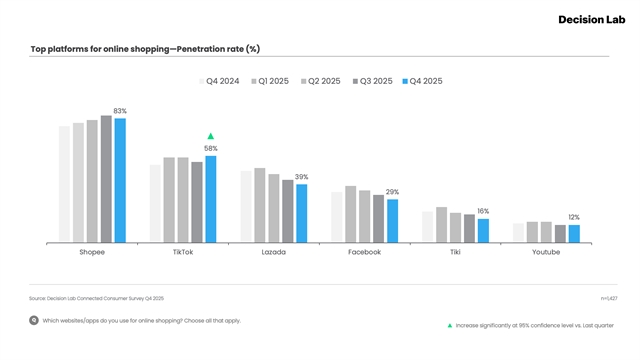 Politics & Law
Politics & Law

HÀ NỘI — Lawmaker Nguyễn Anh Trí on Monday presented a proposal to a meeting of the National Assembly Standing Committee on building a Law on Gender Identity.
In Việt Nam, there are currently no specific legal documents regulating gender identity and gender transition and no comprehensive and complete studies or surveys on gender identity and transgender people in Việt Nam, therefore there is currently no accurate picture of the situation.
The building of gender identity law would clearly demonstrate the high regard that the Socialist Republic of Việt Nam holds for the values of humanity and the spirit of protecting vulnerable communities and 'leaving no one behind' in its policies, Trí said.
The scope of the law only focuses on two gender identities, male and female.
Accordingly, the law regulates the rights and obligations of individuals who undergo sex reassignment from female to male or from male to female; competent agencies confirming the gender identity of transgender individuals; conditions, documents, and procedures for individuals who wish to undergo sex reassignment procedures; conditions, documents, and procedures for organisations and individuals performing medical interventions.
Three policies are clearly stated in this proposed law: the right to change their gender identity, the right to have a gender identity that is different from the gender at birth recognised upon the request of the citizen, and the right to choose a medical intervention method for sex reassignment.
Trí said that just a day before, in a feedback document, the Government has stated its position supporting the making of the gender identity law, which would help contribute to the institutionalisation of some human rights-related contents that have been recognised in the 2013 Constitution and the 2015 Civil Code.
From 2016, the Government has assigned the Ministry of Health to research and propose the development of legal documents on sex reassignment, however, this is a difficult issue that requires time and resources.
The Government has tasked the ministry to provide its research results to facilitate the efforts of NA lawmakers in penning the bill.
Presenting the reviews of the proposal, Chairman of the NA Legal Committee Hoàng Thanh Tùng stated that the NA Legal Committee and the Social Committee highly appreciate the efforts and dedication of the NA deputies in preparing the proposal for the law, and recognise the necessity of promulgating this law.
Most opinions from the NA Legal Committee concurred to include the gender identity law project in 2024 agenda and table the bill for NA-wide feedback during the eighth plenary session, Tùng said.
He also requested the Government's support in coordinating with lawmakers in the building of the law.
Tùng also pointed out a number of concerns from the committee given its sensitive and difficult nature, which ask for more clarity on the political and real-life basis for the building and promulgation of the law in the proposal.
The scope of the law also has some overlaps with the Law on Gender Transition that the Government is studying, Tùng noted, asking lawmakers to continue studying the issue to complete the requested document for the building of the law.
NA Secretary Bùi Văn Cường said sensitive or difficult is not a good reason to avoid the issue.
"[Society] is relatively open towards the issue already. If we don't soon build a legal corridor, there will be a lot of issues in both institutional and practical dimensions," Cường said.
Chairman of NA Social Committee Nguyễn Thuý Anh, while appreciating Trí's brave and dedicated initiative given the nature of the law, but urged the authors to deliberate more on the practicality and the relevant documents to improve the draft law project.
The top legislator Vương Đình Huệ underlines his respect for the proposal to build a law by a NA lawmaker.
But given that there are still differing opinions and there is still time left, Huệ suggested that the reviewing bodies, deputy Trí, and the Government prepare additional reports and submit them to the NA Standing Committee at the next meeting. — VNS




